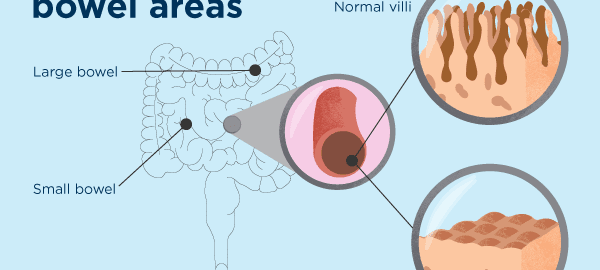The Rise Of Coeliac Disease and the Need For Increased Knowledge on the Condition
Coeliac Disease is a prolonged autoimmune condition that is prompted by gluten which is found in wheat, barley and rye. Coeliac Disease is a permanent intolerance to gluten.
This disease affects more females than males and research has estimated that 1 out of every 100 people in the world is affected by this condition. There is such a lack of knowledge on the condition that even medical professionals frequently misdiagnose the symptoms and over 90% of coeliacs are actually unaware that they have the condition. Ireland has one of the highest numbers of coeliac sufferers in the world. People who suffer from Coeliac Disease can be affected in many different ways. Symptoms include severe chronic reactions but also may have no visible or physical reactions but it may be causing serious damage internally without the sufferer even knowing. Other symptoms can include depression, chronic stomach pain, cancer, diabetes, thyroiditis and osteoporosis etc.
The most effective treatment is total avoidance of any foods that contain gluten and indeed ensuring that food preparation does not become contaminated with gluten. For instance if a bakery has incorrectly cleaned a tray and then bakes gluten free bread on it, it is contaminated and will make a coeliac sufferer sick. Therefore the need to educate and inform the general public and those dealing directly with creation and delivery with food and drink is extremely necessary. Basically if a chef or other food producer is unaware of the issues surrounding coeliac disease they may be inadvertently poisoning and damaging the health of their consumers. To provide an example of the pain of lack of knowledge may cause, one studies respondent described the pain as
Tags: Coeliac, condition, disease, foods, free, gluten, marydaly, studies


